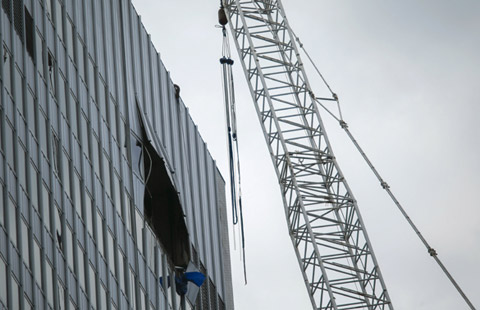Beijing smoking ban begins to bite
Updated: 2015-06-02 08:40
By Wang Xiaodong(China Daily)
|
||||||||
Determination the key
Yang Gonghuan, former deputy director of the Chinese Center for Disease Control and Prevention, said the regulation could be implemented successfully if the Beijing government is determined to make it happen. Similar legislation was successfully introduced in Shenzhen, Guangdong province, in March last year.
"Like the regulation in Shenzhen, the Beijing regulation has been designed well," Yang said. "I think a sustained period of enforcement would ensure that the regulation is effective."
Beijing imposed similar strict limitations ahead of the 2008 Olympics Games, which resulted in smoking being banned in many public places, including schools, restaurants and office buildings.
Initially, the ban achieved satisfactory results, but in the aftermath of the Games, supervision and enforcement became lax, and people started smoking in public places again, she said.
"To implement the new regulation effectively, the authorities must consistently push forward supervision and law enforcement," she added.
On Monday morning, officers from the Beijing Health Inspection Bureau were dispatched across the city to inspect a number of restaurants and other public places.
At Beijing Chaoyang Hospital, no-smoking signs had been posted in the corridors of the hospital, and there were no indications of smoking or of cigarette butts.
Qin Lingling, a cardiothoracic physician at the hospital, said the medical fraternity first began pushing for prohibitions on smoking 20 years ago, and physicians will study the regulation to ensure it is adhered to at the hospital.
However, at a restaurant in Beijing's Chaoyang district, officers from the bureau spotted cigarette butts in the bathroom, and the only no-smoking signs to be seen had been placed on a wall far from the customers and the main entrance. Liu Pengqiang, the manager, said the restaurant's parent company contacted him a few months ago and ordered him to make full preparations for the regulation.
Liu Ying, an enforcement officer, said: "The signs should have been displayed in a prominent place, such as close to the entrance. Moreover, the signs here are too small, and they don't include the hotline number so customers or staff can report violations," she said.
When contacted by phone on Sunday, the owner of the Denglu Bar in Beijing's trendy Sanlitun bar area told China Daily that smoking would be banned starting Monday, because of the threat of surprise inspections by enforcement officers.
"The regulation says you are not allowed to smoke in the bar," said the owner, who declined to be named. "But it's difficult to say; we don't know whether the regulation will be enforced strictly."
According to a survey conducted by the Beijing disease control center last year, bars, nightclubs and restaurants-the places with the highest rates of smoking-will be the most difficult places to enforce the new regulation.
The survey, which covered 8,000 people, concluded that 89.5 percent of patrons of bars and nightclubs are exposed to secondhand smoke, while about 65 percent are exposed to it in restaurants.
Wang Benjin, deputy director of the Beijing Health Inspection Bureau, said the bureau will intensify law enforcement in nightclubs and bars.
However, he added that relying on enforcement alone might not be enough, because there are only about 1,000 health inspectors in Beijing, but there are more than 4 million smokers.
Society as a whole should join the fight against illegal smoking, and voluntary adoption by smokers will be very important, he said.
National significance
Cui Li, vice-minister in charge of the National Health and Family Planning Commission, said the new regulation has national significance. "Beijing has provided a good example, and we hope the regulation will be carried out effectively," she said.
Yang, the former CDC vice-director, said all eyes are now firmly focused on the city: "As the capital of China, Beijing has a unique status. The whole country and the world are watching. The success of the regulation will have a major influence on tobacco-control efforts in other Chinese cities."
ThinkTank's Wu said other parts of China would be able to learn from Beijing's experience and its successes and failures when they enforce their own tobacco-control legislation.
"As latecomers, they will be expected to make better, more-effective laws and regulations," she said.
At present, about 20 major Chinese cities, including Shanghai and Shenzhen, have adopted tobacco-control regulations that cover 140 million people. A national regulation, proposed by the National Health and Family Planning Commission, is now under discussion among different government departments and is likely to be adopted, Yang said.
Schwartlander, the WHO representative, said: "Beijing has set the bar very high-and we now look forward to other cities around China and the rest of the world following Beijing's excellent example."
- Bridging rural-urban gap in education from start
- Overseas study consultancy offers scholarships to top 5 US universities
- China trying to reach 13 people near MERS patient
- Gaokao countdown begins with incense and prayers
- Children's Day celebrated across China
- Ballet dancers perform at Zhalong National Nature Reserve in China's Qiqihar
- IOC publishes evaluation report on 2022 bids
- MERS-infected S. Koreans rise to 18, no tertiary infection reported
- S. Korea to belatedly ban MERS suspects from leaving country
- Chinese rifle shooters shine at Munich World Cup
- Cameron in Paris to push for EU reforms
- Volcano erupts on southern Japanese island

 Ten injured in crane accident in Manhattan
Ten injured in crane accident in Manhattan
 Forum trends: Becoming 'a little more Chinese'
Forum trends: Becoming 'a little more Chinese'
 Giraffe survives for five years with zig-zag neck
Giraffe survives for five years with zig-zag neck
 World's 15 most valuable brands of 2015
World's 15 most valuable brands of 2015
 The world in photos: May 25- 31
The world in photos: May 25- 31
 Solar plane departs from China to Hawaii
Solar plane departs from China to Hawaii
 Modeled on the United States Capitol
Modeled on the United States Capitol
 Highlights of National Children's Wear Design Contest
Highlights of National Children's Wear Design Contest
Most Viewed
Editor's Picks

|

|

|

|

|

|
Today's Top News
Chinese soldier
gets UN award
Nation's astronauts eager for foreign missions
China committed to upholding peace, stability in South China Sea
Li's trip a watershed in China-Latin America ties
Kerry delays return to US after injury in bicycle crash
Californians turn to Australia to learn how to fight drought
China issues six-point response to US remark on South China Sea issue
Chinese ambassador warns US against escalating situation in S China Sea
US Weekly

|

|






